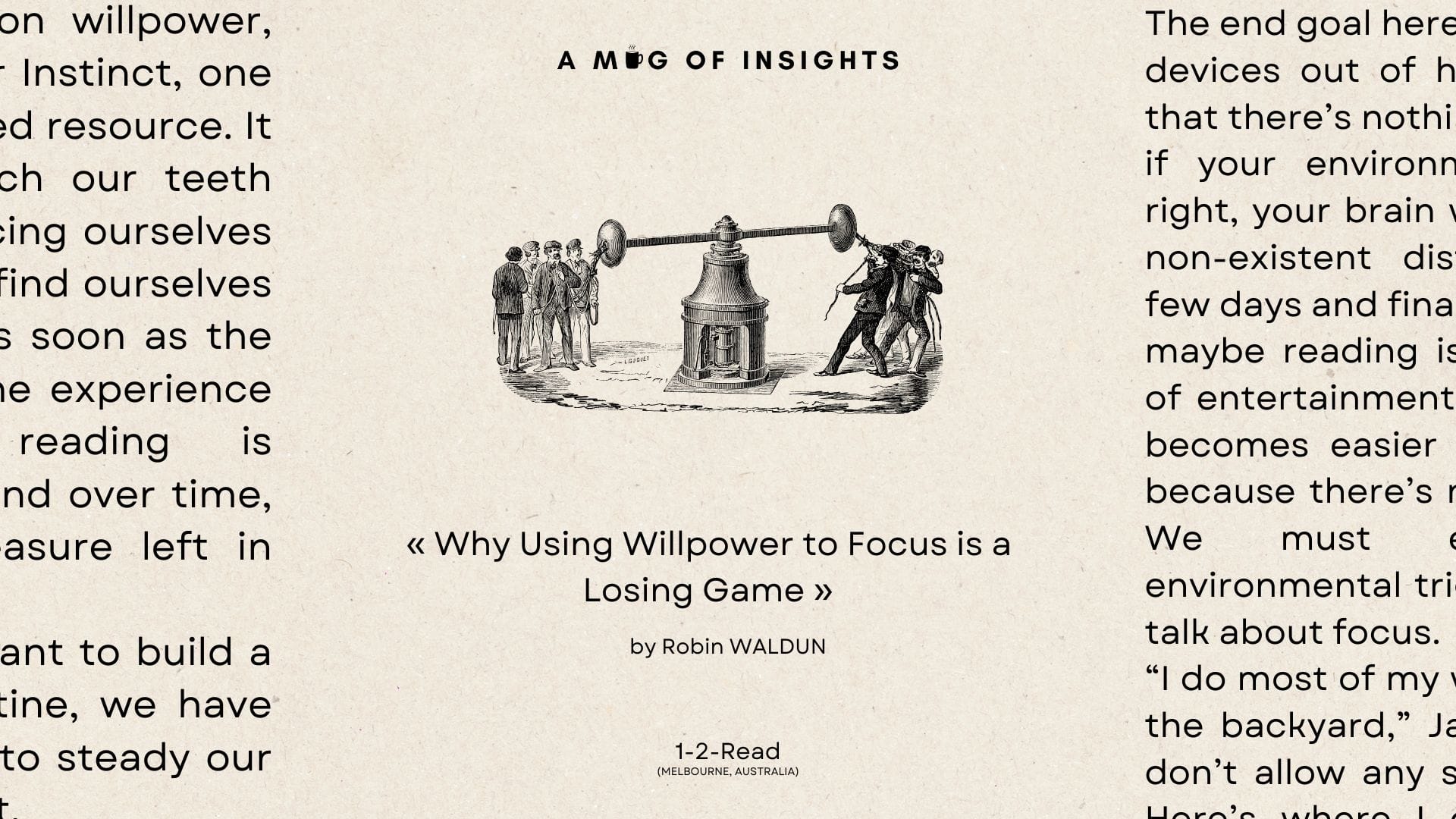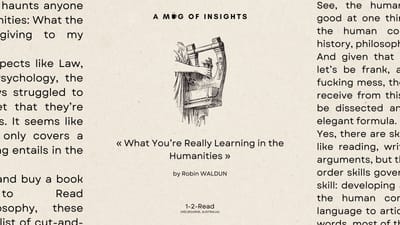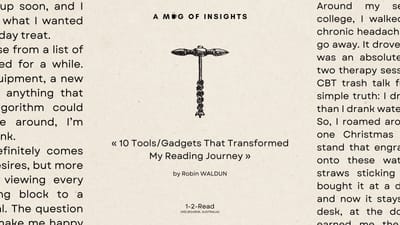Why Using Willpower to Focus is a Losing Game

Welcome to the 1-2-Read letter! Every issue will give you a practical idea and two journal prompts to transform how you read & think. If you're enjoying these letters, consider upgrading to receive an extra letter on Mondays. Your contributions keep the lights on around here, and thank you so much for your support!
(1) The Idea: Forget about willpower
I recently interviewed Dr Jared Henderson for a chapter of my book, and our conversation landed on how to read for long hours.
There are a few common issues people face when they sit down to read:
· Their minds start to wander
· They can’t remember what they’ve read and have to re-read it
· They get tired after a few pages
And everyone’s catchall fix for these problems is to bull your way through with willpower. But the problem there is that it doesn’t work at all!
From all the research on willpower, notably in The Willpower Instinct, one thing is clear: it is a limited resource. It means that if we clench our teeth throughout the day, forcing ourselves to read, then we’ll likely find ourselves staring at our phones as soon as the sun sets. Even worse, the experience of willpower-driven reading is chronically frustrating, and over time, there might be no pleasure left in picking up a book.
This is why, if we ever want to build a sustainable reading routine, we have to look for another way to steady our minds in our environment.
“So, imagine this”, Dr Henderson said, “someone complains about not being able to read, but then I ask him: where do you get your reading done? Then he tells me that he tries to read at the noisiest bar down the road.”
Like it or not, our lives are made of a series of these noisy bars. We keep all our notifications on. We keep the TV humming and a podcast blasting while our brains struggle to comprehend anything from a page. This is why reading is so frustrating. There’s always something around the corner to drag us from the page, and we have to be on guard 24/7.
Jared continued: “The solution is very simple. Just stop going to the bar.” If we ever want to recover our sacred reading time, then an elimination digital diet is an absolute must. We have to work upstream, find the culprit and craft an environment where our brains have no choice but to turn to the page, sometimes out of boredom.
In practice, this looks like
· Moving all social media apps to a desktop version
· Use web blockers on your phone and your computer
· Adopt single-purpose devices so there’s clear context separation
· Schedule social blocks for checking messages & emails so that you don’t turn to social media by default
The end goal here is to check your devices out of habit and realise that there’s nothing to check. And if your environment is set up right, your brain will scramble for non-existent distractions for a few days and finally conclude that maybe reading is a good source of entertainment. Et voilà, now it becomes easier to sit and read because there’s nowhere to turn. We must eliminate the environmental triggers before we talk about focus.
“I do most of my work in a shed in the backyard,” Jared said, “and I don’t allow any screens in there. Here’s where I do most of my drafting.” He held up a beat-up leather-bound notebook with a smile.
“Because even as someone who’s very conscious of this stuff, if I’m not careful, suddenly I don’t [read]/write all day.”
(2) The Prompts
1: Audit your environment for distractions and write them down. What triggers these loops of doom-scrolling? And where do you spend most of your time instead of fulfilling your reading goals? Be very honest and write all of them down in a list. Now you know what you’re up against.
2: Go on a digital elimination diet for this week. Utilise tools such as ScreenZen, Unhook (for YouTube) or Freedom and eliminate all sources of social media/digital distractions. You’ll survive without them for a week and seek out boredom deliberately. Then, let yourself sink to the depth of boredom-hell to the point where reading starts to seem appealing. Then, notice how your relationship with the page starts to change.
Subscribe to my newsletter to get the latest updates and news




Member discussion